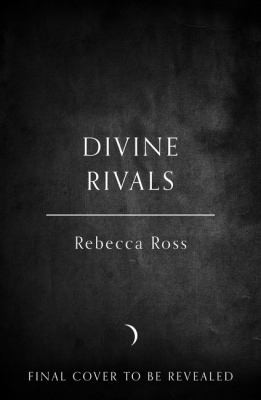Joy101 reviewed Divine Rivals by Rebecca Ross (Letters of Enchantment, #1)
None
(not provided)

English language
Published Aug. 4, 2023 by Little, Brown Book Group Limited.
Eighteen-year-old Iris dreams that one day her writing will make a difference. A war between gods is raging, and she’s landed a prestigious job at the Oath Gazette.
But at home, she’s barely holding it together. Her brother is missing on the frontline. Her mother is lost in a haze of addiction. And each night Iris pours her heart out in letters to her brother.
Letters that will never be answered. Or so she thinks…
Her letters have made their way into the hands of the last person Iris trusts: Roman Kitt, her cold, unforgiving rival at the paper. When he anonymously writes back, they forge a magical connection that will seal their fate forever.
(not provided)
And I’m not afraid to be alone, but I’m tired of being the one left behind.
This book made me think of stained glass or a kaleidoscope: a beautiful collection of shiny pieces that, upon a closer look, don't quite meld into a cohesive whole. That's especially true for the setting in particular. The worldbuilding is just... so disjointed. There's that historical magical realism vibe that's especially strong at the beginning, and then there's all the big divine lore hanging over everything, and then there is the vividly painted picture of war and how it affects people. Sometimes, all of those strokes paint a coherent picture; plenty of other times, they clash.
Speaking of those war parts: I actually felt cautious about tackling the book because of this topic, but that ended up my favorite aspect of the story. I didn't expect it to be so visceral and to …
And I’m not afraid to be alone, but I’m tired of being the one left behind.
review to come
In the beginning I thought this book was simply amazing. The story consists of three parts that could each stand on their own, with great ideas. With big life-changing events separating the parts. Some original mythology. And an absolutely enchanting writing style.
But then again, this is not just a romance story, but also a war story. With war logic, war values and war events, inspired by WW1. And I really don't understand why people like to fill their leasure time and literature with such horrible stuff. Yes daddy, there's nothing more romantic than trenches full of bodies, and then the sudden introduction of chemical weapons.
Nonetheless, it could still have been a great book if the author had chosen the easy way of writing a predictable happy end. Instead she chose one you just cannot predict, not even in your wildest phantasies, not even after reading this …
In the beginning I thought this book was simply amazing. The story consists of three parts that could each stand on their own, with great ideas. With big life-changing events separating the parts. Some original mythology. And an absolutely enchanting writing style.
But then again, this is not just a romance story, but also a war story. With war logic, war values and war events, inspired by WW1. And I really don't understand why people like to fill their leasure time and literature with such horrible stuff. Yes daddy, there's nothing more romantic than trenches full of bodies, and then the sudden introduction of chemical weapons.
Nonetheless, it could still have been a great book if the author had chosen the easy way of writing a predictable happy end. Instead she chose one you just cannot predict, not even in your wildest phantasies, not even after reading this review. And there will be a sequel, which won't be as good. The best parts are already told.
Edit: Also, this book is so straight. So He-must-be-the-one-protecting-Her straight. Literally no-sex-before-marriage straight. Not even the one queer couple in Avalon Bluff can fix this.
Tagline: No God. No War.
No one can come between them.
5/5
a reader's guide to books and reviews | Pillowfort | Bookbub | LibraryThing | The Story Graph | livejournal
Tagline: No God. No War.
No one can come between them.
5/5
a reader's guide to books and reviews | Pillowfort | Bookbub | LibraryThing | The Story Graph | livejournal









